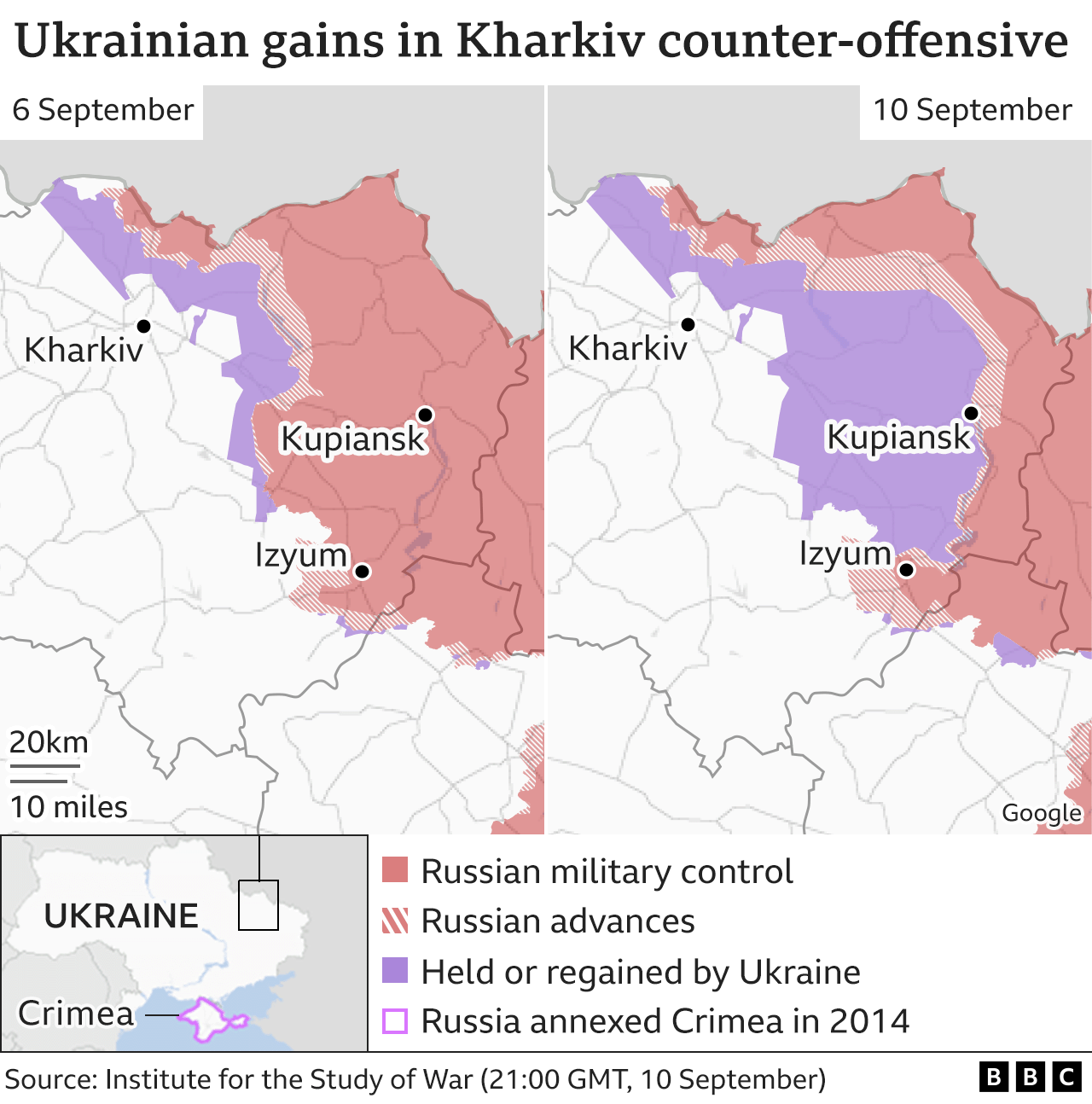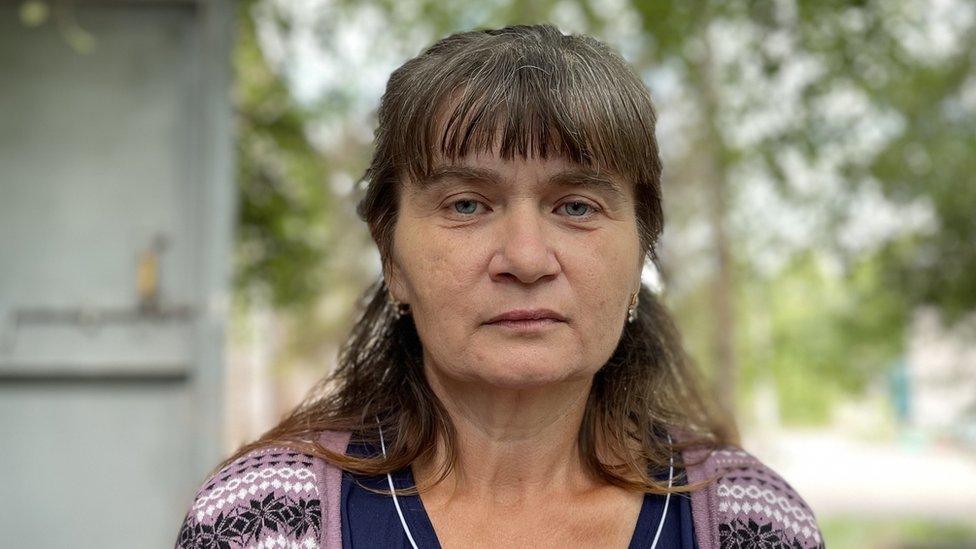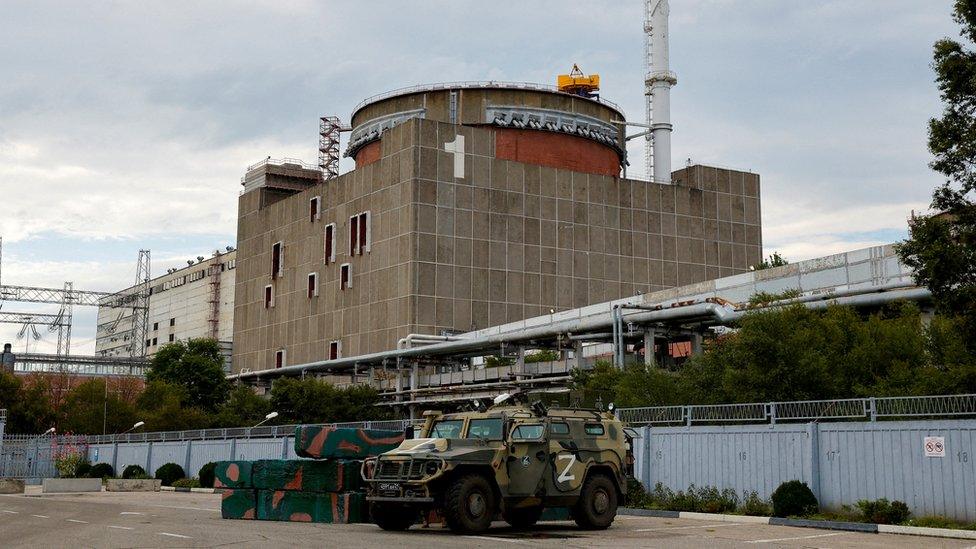Ukraine war: Kharkiv blackouts caused by targeted Russian attacks - Zelensky
- Published
Watch: Firefighters battle flames after missile strike on power station
Russia aims to "deprive people of light and heat" by causing power cuts across eastern Ukraine in revenge for a Ukrainian counter-offensive, President Volodymyr Zelensky has said.
Blackouts reportedly affected millions of people in the eastern Kharkiv and Donetsk regions. The Kharkiv city mayor says power is now restored.
It comes after Ukraine said it had retaken over 3,000 sq km (1,158 sq miles) in an eastern counter-offensive.
The BBC cannot verify these figures.
Kharkiv mayor Ihor Terekhov said Russian attacks on civilian infrastructure left much of his city without power or water on Sunday evening.
He called it a vile and cynical attempt at revenge for the Ukrainian army's recent successes.
What sounded like two further missile strikes were heard later in the evening, the BBC's international correspondent Orla Guerin reported from Kharkiv.
Mr Terekhov and the region's governor called for calm, saying the emergency services were working to repair damage and put out fires.
The governor of the neighbouring Sumy region said over 130 settlements in one district alone were without power.
Similar problems have been reported in Dnipropetrovsk and Poltava regions.
In a defiant post on social media after the power cuts, President Zelensky accused Russia of carrying out "terrorist acts" by targeting civilian infrastructure.
"Cold, hunger, darkness and thirst are not as terrible and deadly for us as your 'friendship and brotherhood'," he wrote on Telegram.
It comes after a remarkable Ukrainian advance, which if confirmed will mean Ukrainian forces have tripled their territorial gains in little over 48 hours.
President Zelensky said 1,000 sq km had been retaken on Thursday evening. That figure rose to 2,000 sq km on Saturday evening, then to 3,000 on Sunday.
UK defence officials estimated that Ukraine had recaptured territory at least twice the size of Greater London, external - more than 3,000 sq km - in the Kharkiv region since Wednesday.
They added that Ukrainian army's successes would have "significant implications" for Russia's overall operational design.
Journalists have been denied access to the front lines but several videos on social media show Ukrainian troops present in towns and villages that were until recently held by Russia.

Ukrainian forces entered the key town of Balaklyia on Friday. Russia later confirmed the withdrawal of troops, to "bolster efforts" on the Donetsk front.
The vital Russian-held supply towns of Izyum and Kupiansk were taken by Ukraine on Saturday. Russia confirmed its forces' retreat from both towns, which it said would allow them to "regroup".
Valerii Marchenko, mayor of Izyum, said residents should be able to return to the town in about 10 days for the first time since it was captured by Russia in March.
Two-thirds of the population had fled, he told Newshour on the BBC World Service, but most wanted to go back despite extensive destruction and a lack of energy, water or communications.
Izyum was probably the biggest logistical hub for the Russian army, he said, as it was a gateway to Sloviansk and Kramatorsk in the Donbas region, where Russia wanted to advance.
But Russia still holds around a fifth of the country, and few imagine a swift end to the war.
In an interview with the Financial Times, Ukraine's Defence Minister Oleksii Reznikov warned of the potential for a Russian counter-attack.
"A counter-offensive liberates territory and after that you have to control it and be ready to defend it," Mr Reznikov said.
Related topics
- Published10 September 2022

- Published11 September 2022

- Published9 September 2022
